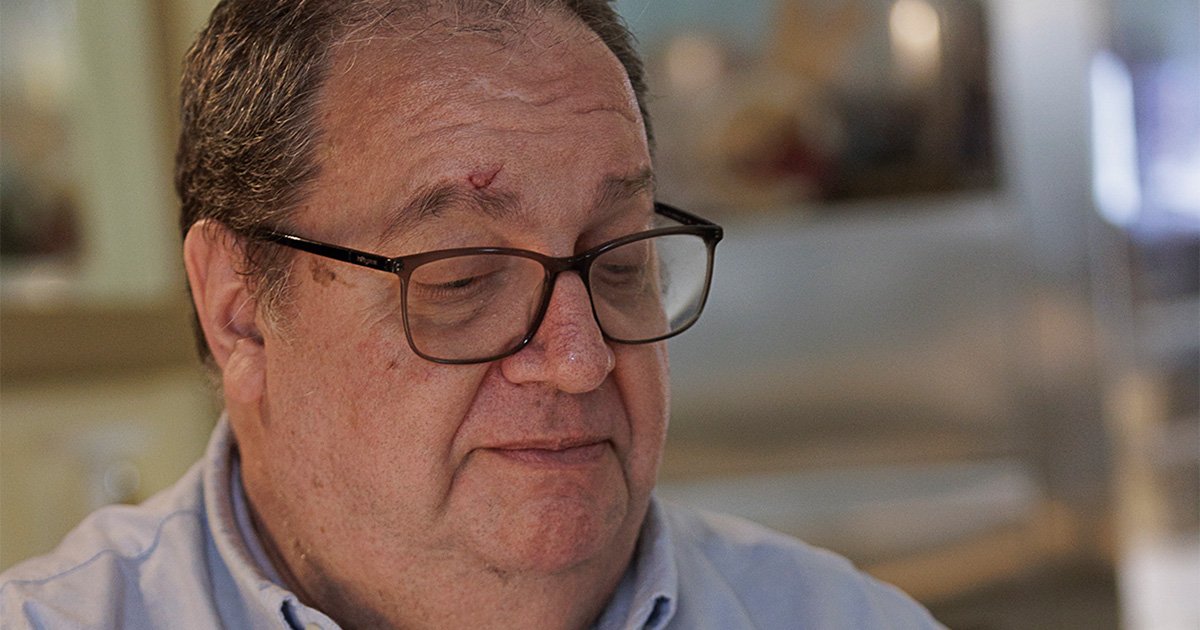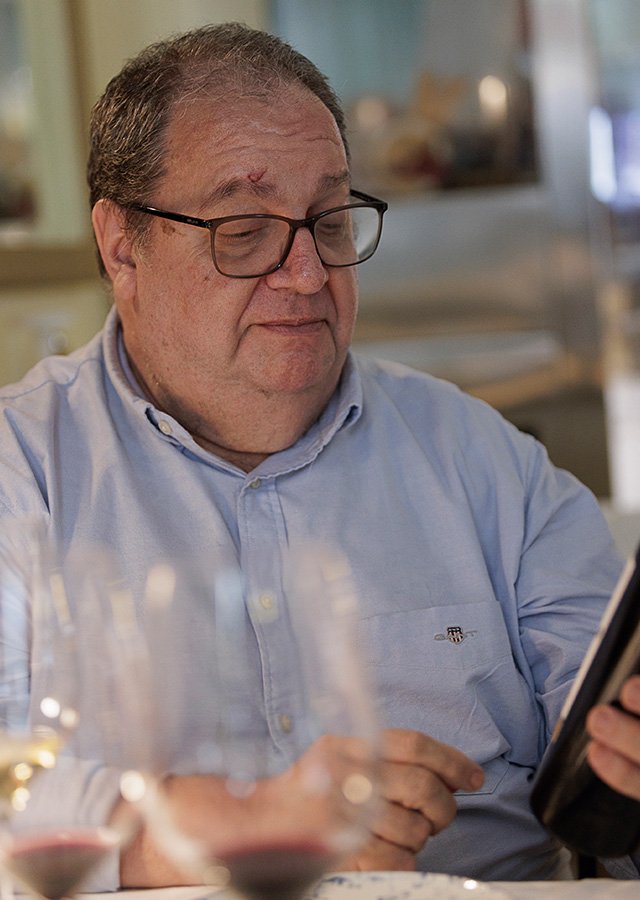
Lunchtime
was approaching on a particularly rainy day, but with the promise of a pleasant
meal around the table. Expectations were high, as we were scheduled to meet
Fernando Melo. Fortunately, our expectations proved to be true. A good meal is
worth very little if the company isn’t good, but with Fernando Melo, in a
sincere exchange of ideas and stories, the food and wine, which were already
excellent, tasted even better.
The
chosen venue was the Horta dos Brunos restaurant in Lisbon. A warm and
extremely courteous welcome. Fernando had warned us: «I don’t talk about
gastronomy or oenology. I only know how to talk about food and wine.»
And indeed, he does. But we’ll come to that in a moment, because now we’re
interested in talking about the person behind this well-known figure.
Talking
about his childhood, he tells us that he spent his first seven years in
amazement: «Everything was new, everything seemed distant and nothing seemed
like me.» He was always the best student, used to excelling at
everything, but isolated, until he discovered a sense of discontent in the
turmoil of an invigorating youth, where he decided to reinvent himself.
Born in
Oporto, he moved to Lisbon with his family while still young. Used to spending
long periods of time at the house of an uncle who lived in Évora and was an
engineer, it was there that he was inspired to pursue engineering. A degree in
technical engineering followed, but he switched to physics. He thought about
dropping out to escape the drudgery of the course at the time, until a
professor urged him to join a new course, where he was very happy, because he
felt «at ease with the experience»,
particularly because of how demanding it was. And he fell in love with it, more
out of a desire to do something different than out of vanity. Along the way,
the desire to become a Jesuit came up. It wasn’t an obvious calling, but it
seemed structural at a time when the inevitability of life had left him feeling
directionless. However, his plans took a different direction and the desire to
be a father proved stronger. He clung to the strength of his heart and today he
is the father of «three marvellous children».
He
embarked on a PhD – which he never completed – worked on formal methods, in description
language and in remote detection applications, with satellite images and air photography.
But he started questioning whether this was really the life he wanted to
pursue. He then realised that he had a somewhat extraordinary knack for tasting
wine. That’s when he began the adventure of going to all kinds of high-profile
technical spaces in all the countries he travelled through, to the point of
filling suitcases with tasting glasses. He thought: «My life is changing»,
and it changed entirely. He defended his doctoral thesis and said goodbye to
that life as if he’d never had it. His father asked him: «But do you feel a
sense of fulfilment in what you’re doing,»
and Fernando replied: «Dad, what I’m doing today is by far the most complex
task of my entire life, I’ve applied myself completely to doing it.»
And that’s how it is. For Fernando, «the
simple critique of a wine is an intellectual exercise; people have the habit of
categorising what is more difficult and what isn’t.»
But for him, it’s simple: «Basically, I stay calm, because wine tasting is
about creating knowledge, it’s a beautiful exercise, it’s liberating and it’s
grounding at the same time.»
Meanwhile,
he started receiving professional invitations, along with the company he owned.
Along the way, he suffered a case of hydrocephalus and yet another new lease of
life. From then on, Fernando Melo was never the same and dedicated himself to
an art that he explains as «looking at all the bottles, at a menu, and
recognising a code», becoming an expert in opening that code.











